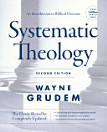Malum: A Theological Hermeneutics of Evil
মে’ ২০২২ · Wipf and Stock Publishers
ইবুক
482
পৃষ্ঠা
family_home
যোগ্য
info
reportমূল্যাংকন আৰু পৰ্যালোচনা সত্যাপন কৰা হোৱা নাই অধিক জানক
এই ইবুকখনৰ বিষয়ে
The incursion of evil has always caused people to turn to the divine, to gods or to a god, in order to reorientate their life. Ingolf U. Dalferth studies the complexity of this procedure in three thought processes that deal with the central concepts in the Christian understanding of malum as privation (a lack of good), as evil-doing, and as a lack of faith. In doing so, he provides a detailed discussion of theories of theodicy, the argument from freedom, and the religious turn to God, in which the author explores the traces of the discovery of God's goodness, justness, and love in connection with the malum experiences in ancient mythology and biblical traditions.
লিখকৰ বিষয়ে
Ingolf U. Dalferth is Danforth Professor Emeritus of Philosophy of Religion at Claremont Graduate University and Professor Emeritus at the Faculty of Theology of the University of Zurich. From 1998 to 2012 he was Director of the Institute for Hermeneutics and Philosophy of Religion at the University of Zurich. The University of Copenhagen and the University of Uppsala awarded him honorary doctorates.
এই ইবুকখনক মূল্যাংকন কৰক
আমাক আপোনাৰ মতামত জনাওক।
পঢ়াৰ নির্দেশাৱলী
স্মাৰ্টফ’ন আৰু টেবলেট
Android আৰু iPad/iPhoneৰ বাবে Google Play Books এপটো ইনষ্টল কৰক। ই স্বয়ংক্রিয়ভাৱে আপোনাৰ একাউণ্টৰ সৈতে ছিংক হয় আৰু আপুনি য'তে নাথাকক ত'তেই কোনো অডিঅ'বুক অনলাইন বা অফলাইনত শুনিবলৈ সুবিধা দিয়ে।
লেপটপ আৰু কম্পিউটাৰ
আপুনি কম্পিউটাৰৰ ৱেব ব্রাউজাৰ ব্যৱহাৰ কৰি Google Playত কিনা অডিঅ'বুকসমূহ শুনিব পাৰে।
ই-ৰীডাৰ আৰু অন্য ডিভাইচ
Kobo eReadersৰ দৰে ই-চিয়াঁহীৰ ডিভাইচসমূহত পঢ়িবলৈ, আপুনি এটা ফাইল ডাউনল’ড কৰি সেইটো আপোনাৰ ডিভাইচলৈ স্থানান্তৰণ কৰিব লাগিব। সমৰ্থিত ই-ৰিডাৰলৈ ফাইলটো কেনেকৈ স্থানান্তৰ কৰিব জানিবলৈ সহায় কেন্দ্ৰত থকা সবিশেষ নিৰ্দেশাৱলী চাওক।







